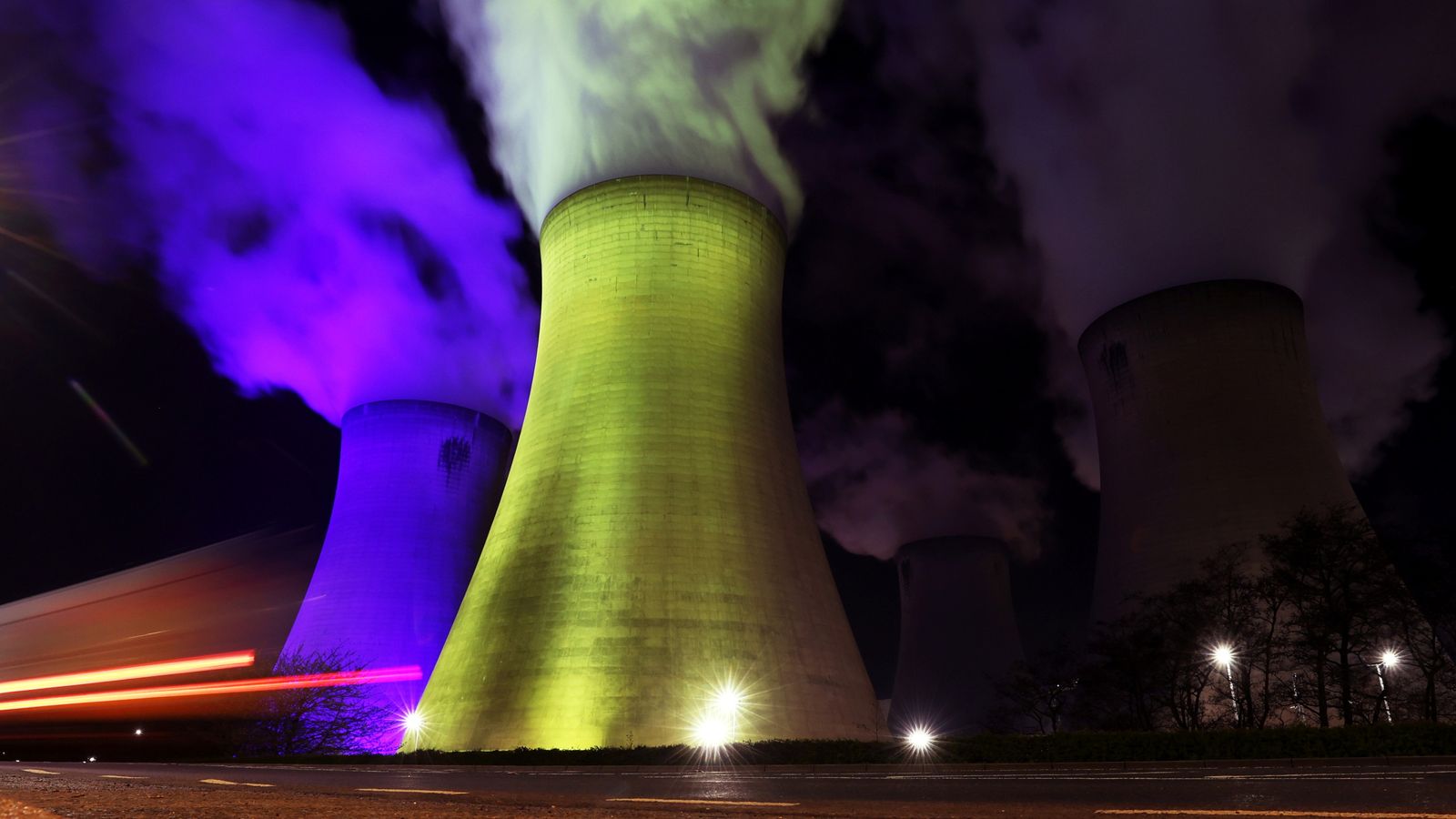A British company that burns wood to create electricity is the latest power giant to post soaring annual profits amid the energy crisis of 2022.
Gas prices reached record highs as Russia gradually shut down its pipelines to Europe after they were hit with sanctions for its invasion of Ukraine, accelerating the shift away from fossil fuels and driving demand for renewables.
But as earnings soared for Drax Group, which provides renewable power from biomass, hydro and pumped storage, critics questioned whether it should continue to receive around £2.4m a day in public subsidies.
The company, which provides 7% of Britain’s electricity, posted annual adjusted core profit of £731m for 2022, up from £398m in 2021- an increase of 83%.
Drax “played a significant role in ensuring security of supply during a challenging year for the UK’s energy system,” said CEO Will Gardiner.
During periods of peak demand and low wind and solar power supply, its renewable stations collectively supplied up to 70% of the UK’s renewable power in certain periods.
On Thursday it increased its total dividend by 11.7% to 21 pence per share, adding its net debt rose from £1.1 to £1.2 billion pounds in 2021.
Capturing carbon emissions and storing it underground could allow polluters to dodge climate action, MPs warn
Drax: Energy generator that burns biomass pleads not guilty in health and safety wood dust case
Climate change: Drax’s renewable energy plant is UK’s biggest CO2 emitter, analysis claims
Drax burns wood pellets to generate electricity classed as renewable in the UK because new trees are planted to soak up the carbon dioxide released by the burned pellets.
Some scientists back the credibility of bioenergy as a way to mitigate climate change, while others argue it’s impossible to guarantee the emissions are reabsorbed, or negate the other pollution.
Click to subscribe to ClimateCast wherever you get your podcasts
Drax’s bioenergy operations makes it eligible for government subsidies, receiving £893m in 2021, according to energy think tank Ember, which will soon do the same analysis for 2022.
“These results show that Drax would not be profitable without public support,” said Phil MacDonald, chief operating officer at Ember.
“The scale of these subsidies just don’t add up,” he said, urging the government to reconsider the funding.
Conservative MP Sally-Ann Hart said: “Burning imported wood pellets for electricity is not cheap for billpayers. Given the growing environmental concerns, ministers shouldn’t commit to new subsidies for this energy source.”
The government is working on a delayed Biomass Strategy, due to be published in the second quarter of 2023.
Watch the Daily Climate Show at 3.30pm Monday to Friday, and The Climate Show with Tom Heap on Saturday and Sunday at 3.30pm and 7.30pm.
All on Sky News, on the Sky News website and app, on YouTube and Twitter.
The show investigates how global warming is changing our landscape and highlights solutions to the crisis.








